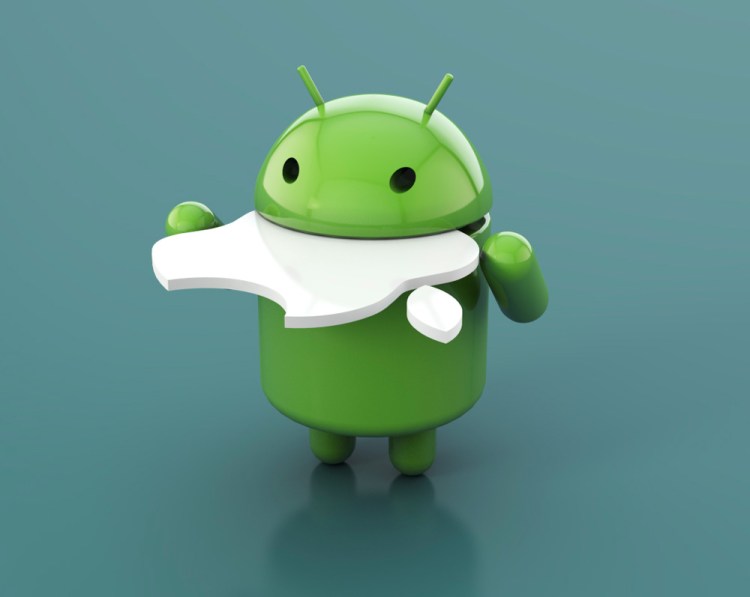There’s no single way to declare a winner between Android and iOS. They may be direct competitors, but Google and Apple have very different strategies for their mobile platforms.
Nonetheless, a lot happened in 2014, and on the last day of the year, it’s time to take a closer look. The Android-iOS duopoly went uncontested, but which of the two won?
Shipments and market share
Let’s get something out of the way right off the bat: the term “market share” refers to the current state of the market, which means devices purchased today as well as those many years ago (as long as they are still in use).
In terms of market share, Android has been winning for many years now in smartphones, while for tablets that trend is more recent. The latest quarterly shipments show the story hasn’t changed. We don’t have Q4 2014 data yet, but we can look at the other three quarters in the year.
For smartphones, IDC numbers are as follows: Android at 81.1 percent and iOS at 15.2 percent in Q1, Android at 84.7 percent and iOS at 11.7 percent in Q2, Android at 84.4 percent and iOS at 11.7 percent in Q3.
IDC doesn’t break down tablet shipments by operating system (only by manufacturer), but last month it did release an estimate for the year based on the data it has so far: IDC expects Android to be first with 67.7 percent of the year’s tablet shipments and iOS second with 27.5 percent. This is quite the gap if you remember it was only in 2013 that Android beat iOS for the first time in the tablet market.
No matter how you slice it, Android outperformed iOS in this area this year, both in smartphones and tablets.
Enterprise
Again, we don’t yet have Q4 2014 data yet, but the last three quarters tell the same story as in previous quarters: Apple has a very strong hold on the enterprise, leaving Google in distant second.
Good Technology estimates are as follows: iOS at 72 percent and Android at 27 percent in Q1, iOS at 67 percent and Android at 32 percent in Q2, iOS at 69 percent and Android at 29 percent in Q3.
This requires the same disclosure as previous “market share” figures: These numbers are for activations in the specific quarters, as opposed to total devices actually in use. That said, iOS has been dominating in this space for many years, so Android would need to win multiple sequential quarters in activations before it can capture actual market share as older devices are replaced in the enterprise.
Apps
In terms of total apps, Google Play has been growing faster than Apple’s App Store. It was last year that Google Play passed 1 million apps (in July 2013), just a month after Apple announced its App Store had passed 900,000 apps (in June 2013).
This year, both stores are around the 1.3 million app mark. Apple’s number is official as of September 2014, while estimates say that Google passed the same figure sometime earlier. Without anything official from Google (unofficial estimates put it closer to 1.5 million), it’s difficult to say which store is bigger at the end of the year. We’d wager Google Play beat Apple’s App Store this year, though that’s simply because it has been growing faster.
In terms of app downloads, Google Play is also likely gaining on Apple’s App Store, though we didn’t see it overtake its competitor this year. Apple has seen 85 billion downloads as of October 2014. The latest Google Play figure we have is still from July 2013, when it passed the 50 billion app download mark, a milestone Apple passed in May 2013. We expect Google may simply be waiting to announce the 100 billion milestone.
Developers
While the platforms that developers chose largely depend on the app ecosystem we outlined above, the amount of money made from these apps is also key. Unfortunately, Google has yet to disclose any specific numbers.
The latest figure from Apple came in July 2014, at which point its App Store had paid out $20 billion to developers, with “nearly half” coming from the 12 months prior. Google has kept quiet as its number is likely to be lower, which is naturally reflected in per-app estimates as well.
Final thoughts
In most areas, Google is already beating Apple, or at least catching up to it. Yet Apple still has a stranglehold in specific areas, ones that aren’t easy to break, including the enterprise as well as the hearts of independent developers and startups.
Looking forward to 2015, we don’t expect the landscape to change significantly, though competition will likely get fiercer. Google will continue to make headway in most areas, simply because its strategy is much broader: more shipments, more devices, and more markets. Apple, meanwhile, will naturally continue to focus on its area of expertise: more revenue.
VentureBeat's mission is to be a digital town square for technical decision-makers to gain knowledge about transformative enterprise technology and transact. Learn More

